SERIES REVIEW – After the disappointing endings of HBO’s Game of Thrones and History TV’s Vikings, Netflix’s The Last Kingdom was the only hope left for fans of historical series about the Dark Ages. The good news is that the fifth and final season of the series has delivered on its promise, with one of the best last seasons of all time. And I say that not only as a fan of this series but also as a fan of dark medieval/dark fantasy, Shakespearean drama films and series.
After his noble Saxon parents are killed by invading Vikings, young Uhtred (Tom Taylor) is adopted and raised by the Vikings. As a grown man (Alexander Dreymon), he finds himself in Wessex, where King Alfred the Great has so far successfully prevented the Vikings from conquering his lands in this adaptation of Bernard Cornwell’s series of novels, The Anglo-Saxon Histories.
Slave of Vikings, then foster son, taken in by the English king
Netflix’s sprawling, compelling five-season historical series The Last Kingdom After the Vikings has proven that there is room for more than one Viking invasion on our screens. The Vikings of the Last Kingdom rampage through poor ninth-century England, raiding the country’s crumbling kingdoms with more or less impunity.
In the first season, a northern raiding party led by Count Ragnar (Peter Gantzler) captures a young nobleman, Uhtred of Bebbanburg (played as a child by Tom Taylor, later by Alexander Dreymon), on a raid in his father’s realm. Uhtred is initially treated as a slave by his captors when he is still a child, but Ragnar grows very fond of him and eventually adopts him as his son and raises him.
When he finds himself as an adult, he takes King Alfred of England (later Alfred the Great, played by David Dawson) under his wing and seeks to use the young, proud, immensely arrogant, but also highly intelligent and excellent swordsman Uhtred’s knowledge of Viking society and tactics to drive out the Norse and unite all the English kingdoms under one (i.e. Alfred).
The most murderous period in English history during the Dark Ages
As for the historical fidelity of The Last Kingdom: although the series takes place about a hundred years after the Vikings of the Vikings series first raided the English coast, and there are two Ragnars, neither is the Ragnar Lothbrok of the Vikings. However, the sons of the original Ragnar are also featured in the series, as Ubba is one of the main characters in the first season, and Ivor “Bone-less” is also mentioned. All of this doesn’t really add up, but there were inaccuracies in Vikings, and ultimately, both series are fiction. The fictional character ‘Uthred’s son, Uthred’ himself, is a fictional character because although Bernard Cornwell was the descendant of a warlike Saxon nobleman called ‘Brave Uthred’, he is not the same as the main character in his series of novels.
Finally, it should also be mentioned that although this brilliant series has sadly ended with its fifth season, the whole story concludes with Bernard Cornwell’s final 13th series of Anglo-Saxon histories, which continues the events of the aforementioned Netflix finale. So, for those who have watched the series, it is recommended that you dive into the novels that are available in Hungary (or can be checked out from libraries) if you want to know the real conclusion. At the same time, there will also be a film as an epilogue… but you can read about that below.
More nuanced historical representation
One of the biggest advantages of the Last Kingdom over the Vikings is that it has a much more nuanced history. The series doesn’t portray the Viking conquerors as sympathetic or as rabid beasts, but it does portray them as raping and pillaging in a completely realistic way. The show runners of The Last Kingdom (Gareth Neame and Nigel Marchant, who also worked on Downton Abbey) were free to show the brutal, crude and cruel Nordic people in a way that broke away from the usual clichés, who, in their treatment of the prisoners after the sack of Bebbanburg, were not subtle in their treatment of anyone, but slaughtered in a particularly gruesome manner, while at the same time behaving for the most part in a clean and forthright manner towards each other, following a code of honour far unlike the English. Treachery and intrigue abound among their ranks, of course.
On the other hand, although in some respects the series is intended as a rousing tale of English unification, it can hardly be called English propaganda, since the brilliant but manipulative Alfred, and later his son, Edward and his subjects are also prone to extreme cruelty and prejudice in the name of their god, not to mention that there is hardly a monarch or noble in the series who does not occasionally betray others in the most despicable way possible, even to the point of murdering them.
A starry-eyed shepherd… instead of a Saxon warrior, a true Viking at heart
The young, charismatic German actor Alexander Dreymon proved to be a great choice for the role of Uhtred. His strong (often funny) German accent suits the young Saxon boy raised among Norwegian warriors. Portrayed as brave and skilled in battle, often a great strategist but not a visionary, the extremely handsome (with a bewitching look for the ladies) and boyishly bearded Uhtred may lack the eerie charm of the Vikings’ Ragnar, but in keeping with the more down-to-earth era of The Last Kingdom, Uhtred’s exploits seem less like the actions of a legendary leader ahead of his time. He is more a man whose options are fundamentally extremely limited, and who is constantly improvising to stay alive.
Fortunately for Uthred, he has a sidekick, Brida (the brilliant Emily Cox), a childhood friend who becomes his lusty mistress, while also offering pragmatic advice to Uthred in the first episodes of the first season, so that the Saxon young warrior’s often overly reckless ambitions don’t cause his death. She proves to be a formidable, often deadly ally in the first season, but their relationship takes a different turn later on… And it’s also funny: Emily Cox’s down-to-earth style provides much of the series’ welcome humour. (Her humiliation of an aggressive Viking oracle in captivity is particularly… ingenious. I actually laughed at it with tears in my eyes. )
Grimy and gritty realism, gory fight scenes and storytelling
The inevitable comparisons with the Vikings are illustrative, as The Last Kingdom, while just as realistically grimy and full of both gory and realistic battle scenes, constantly emphasises the everyday cruelty of life in a beleaguered England. The machinations of King Alfred and his son Edward (Timothy Innes)’s rise to power and reign are less epically portrayed than in Vikings (where Alfred also stars), but David Dawson’s brilliant performance as the ailing but highly ambitious king even surpasses the Vikings’ Ferdia Walsh-Peelo, where the story focuses more on the character of the highly manipulative and ruthlessly intelligent king.
The actors are first-rate in every season, whether they are older, younger or even child actors. The first season even featured Rutger Hauer (who has since sadly passed away) as the blind, wise father of Ragnar, who raised Uthred.
Bloody, realistic, gripping
The Last Kingdom has a historical momentum that requires its characters, regardless of culture or rank, to stand firm on the muddy ground of their world. Many of the series’ battle scenes take place in a bloody, muddy mess that is nonetheless rendered with reliably clear storytelling. While Uhtred’s position as a hero torn between two worlds is central, it is not much elevated above the broader context of the story that the series tells so consistently well.
A special mention must also go to the catchy Viking soundtrack of the series, performed by a singer called Eivor, which creates such a great atmosphere at the beginning of each episode that I never once skipped the intro, in which it is always played.
All five seasons of The Last Kingdom are stunning pieces of television. Suppose you like a series where fierce battles are fought covered in blood and grime, with interesting, believable, loveable and hateable characters (it often changes part to part how we relate to them! ) that make up a grand historical epic. In that case, The Last Kingdom is by far one of the best choices. If the extremely high standard of the TV series can be maintained, we can expect an exciting finale. There is only one final film left to complete the story, Seven Kings Must Die.
To quote Uhtred the son of Uhtred, “Destiny is everything! ”
-BadSector-
The Last Kingdom
Direction - 9.5
Actors - 9.6
Story - 9.6
Visuals/Music/Sounds/Action - 10
Ambience - 9.8
9.7
MASTERPIECE
All five seasons of The Last Kingdom are stunning pieces of television. Suppose you like a series where fierce battles are fought covered in blood and grime, with interesting, believable, loveable and hateable characters (it often changes part to part how we relate to them! ) that make up a grand historical epic. In that case, The Last Kingdom is by far one of the best choices. If the extremely high standard of the TV series can be maintained, we can expect an exciting finale. There is only one final film left to complete the story, Seven Kings Must Die.

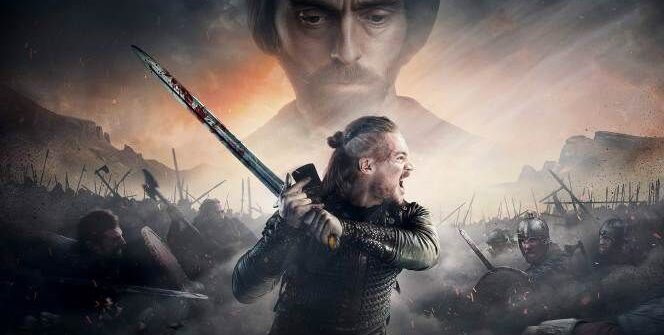
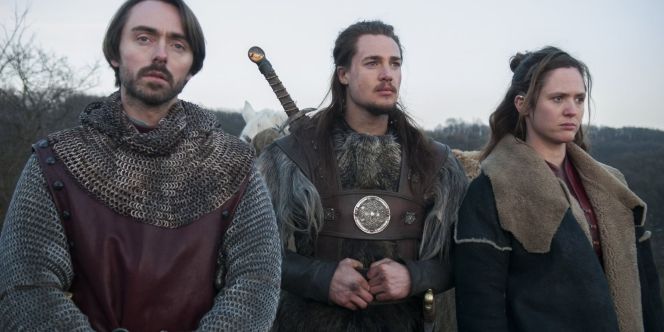
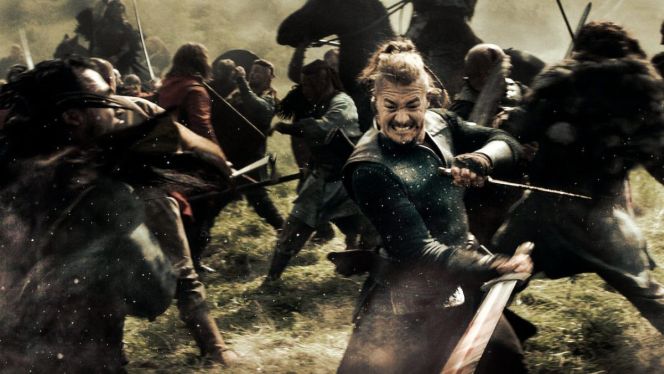
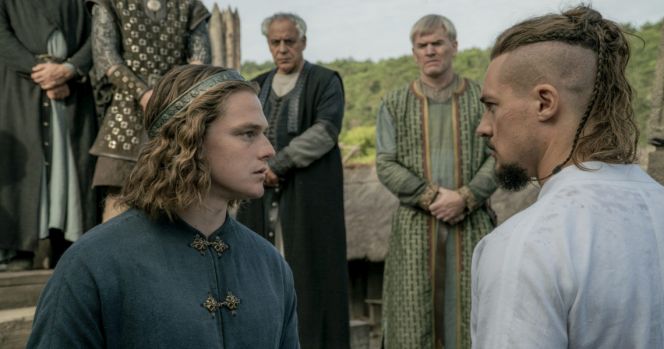
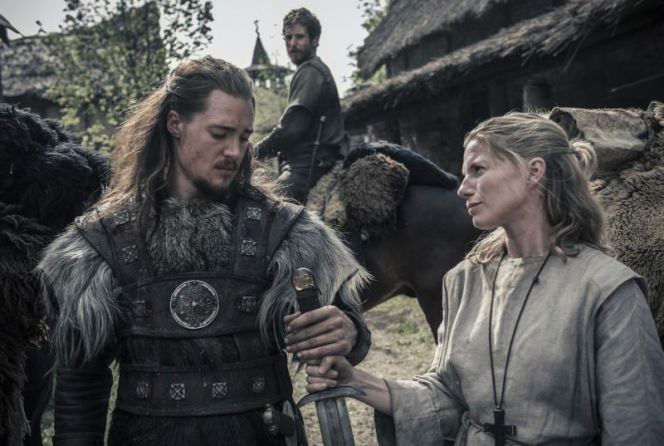
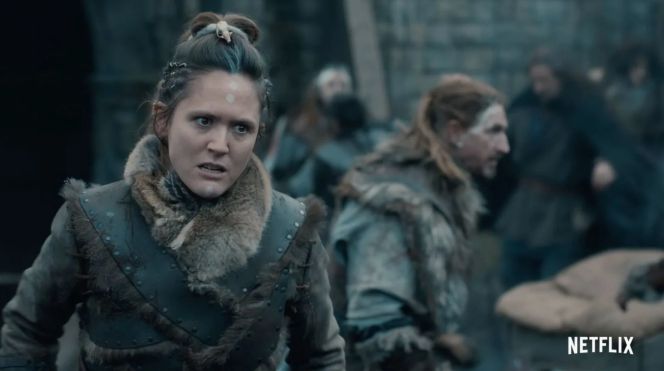









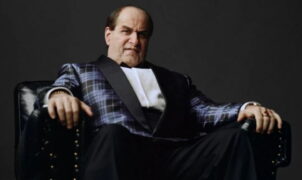




Leave a Reply